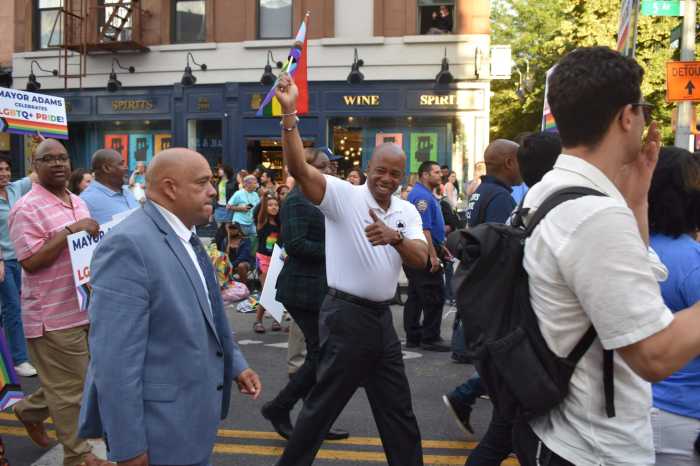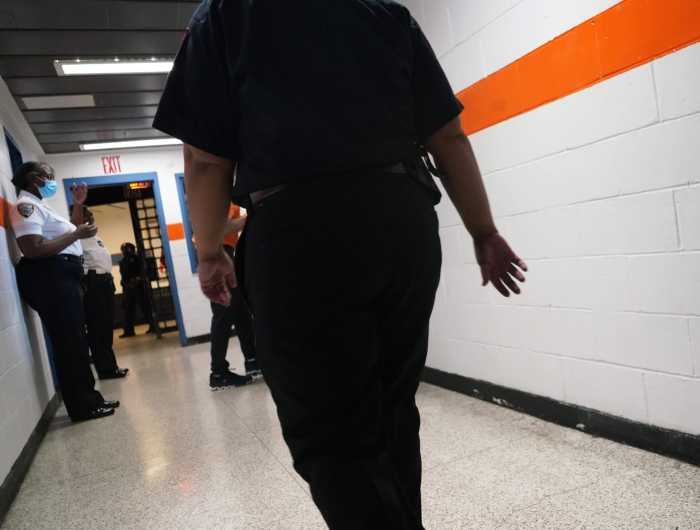BY ARTHUR S. LEONARD | The Alaska Supreme Court has ordered the state to meet its original deadline of January 1, 2007, for the implementation of spousal benefits for same-sex partners of state employees.
Ruling unanimously on December 19, the court rejected a request by the Legislature to postpone the effective date long enough so it could avoid having to provide the benefits by securing ballot approval of a state constitutional amendment.
Governor Sarah Palin, a Republican already inaugurated after her November victory, said that the state will abide by the order, but she also signed a law to put an advisory measure on the 2007 ballot asking voters whether the Legislature in turn should approve a constitutional amendment prohibiting benefits for non-marital partners of state employees. Should voters approve that and the Legislature act in accordance with it, the matter would then have to go back to voters for ratification, so any such ban is not in the immediate offing.
The Alaska Supreme Court has ordered the state to meet its original deadline of January 1, 2007, for the implementation of spousal benefits for same-sex partners of state employees.
The state Supreme Court had ruled in October 2005 that the equality requirements of the state Constitution mandated that committed same-sex partners of both state and Anchorage city employees receive the same benefits as employee spouses. The court said that a state constitutional amendment adopted a decade ago to ban same-sex marriages had no bearing on this question.
Resistance by the state government became apparent this past spring, and the high court sent the case to an Anchorage trial judge to monitor compliance. Under prodding from Superior Court Judge Stephanie Joannides, the state's commissioner of Administration issued regulations governing the eligibility of same-sex partners, but the Alaska Civil Liberties Union, representing gay and lesbian plaintiffs, protested that these rules placed too many burdens on such couples seeking their benefits. Joannides agreed with that objection, and ordered the commissioner to reconsider the regulations.
As all this went on in the state government, the city of Anchorage took steps to implement the high court ruling for its municipal employees.
The state appealed Joannides' order, claiming she had no authority to evaluate the constitutionality of its regulations. The Supreme Court agreed with the state on that point, ruling last week that Joannides' jurisdiction was limited to ensuring the state's timely compliance with its order.
According to the Supreme Court, the state Administration commissioner's regulations enjoyed the same presumption of constitutionality afforded any formally adopted regulations. The only way to challenge their validity would be through a new lawsuit, the Court found.
According to the Supreme Court, the regulations governing medical benefits and retirement systems benefits by law are already effective.
Unless the regulations are loosened, same-sex couples do indeed face stringent hurdles to claiming their benefits. They must meet six out of nine specified criteria, in addition to living together in a shared primary Alaska residence as exclusive, sole intimate partners for 12 consecutive months before applying for the benefits. The nine criteria would in effect require them to engage in what is sometimes called “gay family planning,” generating various legal documents in order to create a web of mutual financial and legal obligations based on joint ownership of real estate and other assets, wills and powers of attorney, and designations as beneficiaries under insurance and employee benefits policies.
Evidently the state commissioner of Administration determined that Alaska, having denied same-sex couples the right to marry, should require them to take all the steps available to simulate a marital relationship before they can qualify for health or survivorship benefits.
Once again, a compelling case has arisen demonstrating how marriage equality for same-sex couples would preclude an intricate, time-consuming, and expensive gauntlet of legal steps facing any same-sex couple looking to provide basic American protections for their family.
































